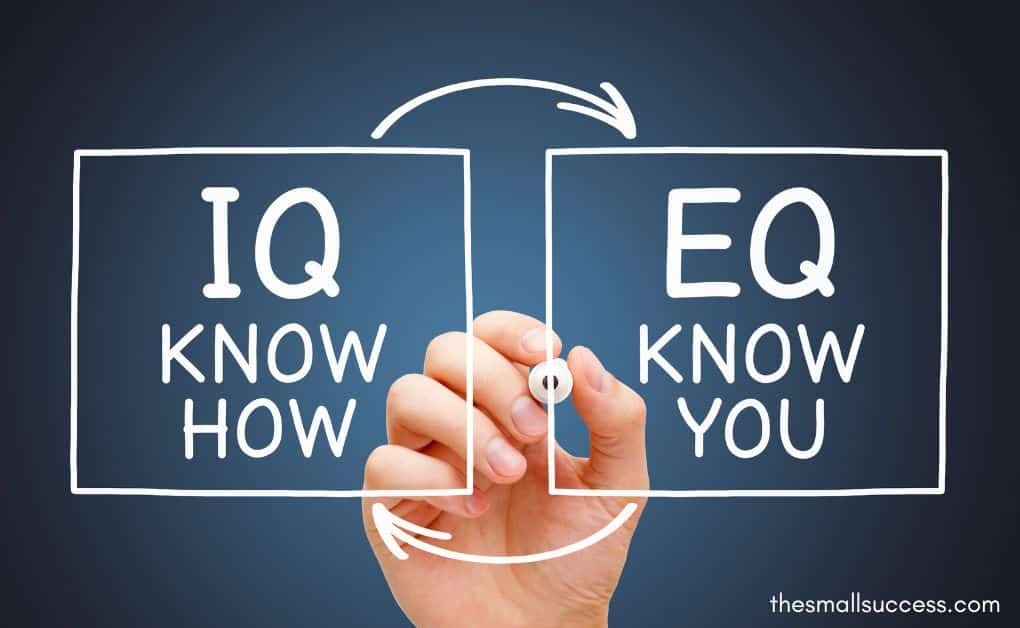When people talk about intelligence, they often refer to IQ—your Intelligence Quotient. It’s the number that supposedly measures how “smart” you are. But in today’s fast-changing, highly social world, there's another kind of intelligence that’s just as important—if not more so: Emotional Intelligence (EQ). And unlike IQ, your EQ can actually be developed and improved over time.
What Is Emotional Intelligence?
Emotional Intelligence (EQ) is the ability to recognize, understand, and manage your own emotions—while also being aware of and sensitive to the emotions of others.
- Self-awareness – Knowing your emotions, strengths, weaknesses, and how they affect others.
- Self-regulation – Managing your emotions in healthy ways; staying in control.
- Motivation – Having internal drive, resilience, and a passion for reaching goals.
- Empathy – Understanding the emotions of others and responding appropriately.
- Social skills – Navigating relationships, managing conflict, and inspiring others.
If IQ is about how you process information, EQ is about how you manage relationships—starting with the one you have with yourself.
Why EQ Matters More Than You Think
You don’t need a psychology degree to see that emotional intelligence affects nearly every part of your life. Studies have shown that EQ plays a crucial role in career success, leadership, relationships, mental health, and overall well-being.
- Better communication – You’re more likely to speak clearly and listen well.
- Stronger relationships – Understanding emotions helps build trust and rapport.
- Career advancement – EQ is a top trait among successful leaders and high performers.
- Conflict resolution – High EQ helps you de-escalate tensions and find common ground.
- Resilience – You bounce back more easily from setbacks or criticism.
In fact, according to a report from TalentSmart, emotional intelligence accounts for 58% of performance in all types of jobs.
Can You Improve Emotional Intelligence?
Here’s the exciting part: Unlike IQ, which tends to stay stable throughout life, EQ is flexible. It can grow with time, reflection, and effort.
Think of EQ like a muscle. The more you work it, the stronger it gets.
How to Develop Your Emotional Intelligence
Improving your EQ starts with small, intentional habits. Here’s a practical guide to get you started:
1. Build Self-Awareness
- Keep a journal to track your emotional reactions during the day.
- Ask for feedback from people you trust—how do they perceive you?
- Reflect on what triggers your stress, frustration, or joy.
2. Practice Self-Regulation
- When emotions rise, pause before reacting. Try deep breathing or counting to 10.
- Develop healthy coping strategies like walking, meditating, or reframing thoughts.
- Avoid impulsive decisions—take time to evaluate before acting.
3. Tap Into Motivation
- Set personal goals that align with your values.
- Break big goals into smaller steps to stay energized.
- Celebrate progress, not perfection.
4. Strengthen Empathy
- Listen without interrupting or jumping to conclusions.
- Try to “step into someone else’s shoes.”
- Read books or watch movies that explore diverse human experiences.
5. Sharpen Social Skills
- Improve your communication—be clear, respectful, and open.
- Practice active listening: nod, paraphrase, and ask questions.
- Learn how to handle feedback or disagreement gracefully.
You might also explore tools like the Emotional Intelligence Appraisal or mindfulness apps like Headspace or Calm to reinforce self-awareness and regulation.
Real-Life Benefits of Growing Your EQ
- At work: You navigate team dynamics with ease, gain influence, and manage stress better.
- At home: Conflicts become fewer, and connections become stronger.
- In yourself: You feel more grounded, balanced, and in control of your reactions.
Even if you're not a naturally empathetic person, emotional intelligence is a skill—not a fixed trait. That means there's always room to improve.
FAQ
Q: Is EQ more important than IQ?
A: It depends on the context. In most real-life situations—especially work, leadership, and relationships—EQ can often have a bigger impact than IQ.
Q: How long does it take to improve emotional intelligence?
A: It varies by person, but consistent practice over a few months can yield noticeable improvements.
Q: Can kids and teenagers develop emotional intelligence?
A: Absolutely. In fact, EQ development in childhood lays the foundation for future success in school and life.
Q: Is emotional intelligence part of personality?
A: Not exactly. While personality traits may influence your natural EQ tendencies, emotional intelligence is a skillset that can be learned and improved.
Q: Are there books that can help increase EQ?
A: Yes! Emotional Intelligence by Daniel Goleman is a great start. You might also enjoy Permission to Feel by Marc Brackett.
Conclusion
While your IQ may be set in stone, your emotional intelligence is a living skill—one that can be trained, strengthened, and expanded. Whether you’re a student, a leader, a parent, or just someone who wants to grow, increasing your EQ will unlock better relationships, smarter decision-making, and a more fulfilling life.
Start small. Stay consistent. And remember: unlike IQ, your EQ is entirely in your hands.

